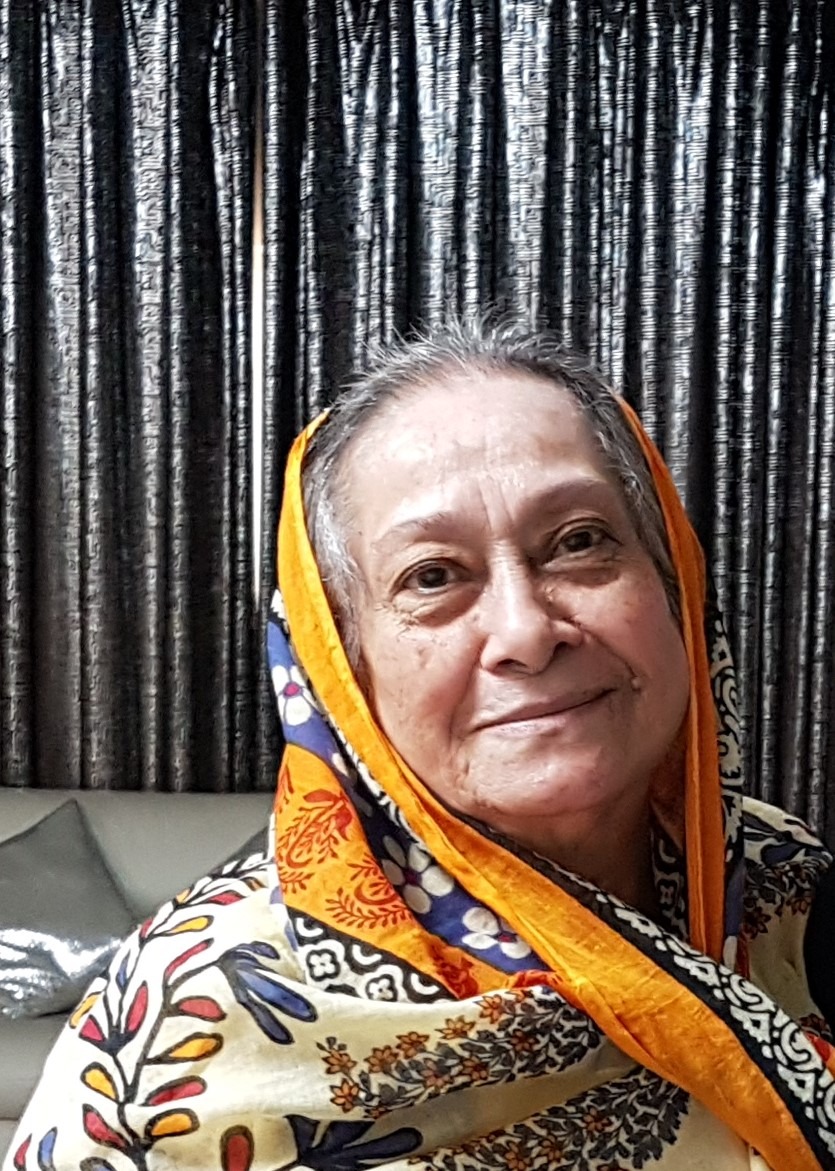

Muscat: In her 80s, Zubaida Jawad Jaafer al Kabouri, is enjoying her days of retirement with beautiful memories of a career which began in 1972 at Al Saidiya School in Muscat and is only sad that she cannot donate blood anymore as she is o+ --- a universal donor.
When she left Muscat for education in 1944 she was six year old.
“I remember one thing I had never entered the fish market at that time. Women did not go into the souqs just like that. My maternal grandparents lived in Sur Lawatiya, but we were living outside the place. I remember the small narrow lanes. We children especially girls used to play on the beach – it was just sand then not the Muttrah Beach Front it is today. We used to make traps so that people walking would trip into the small ditch – we were naughty children. In the morning we used to go to community schools,” she recollected.
During summer she remembers that people used to go to Darsait .
“There were no houses, just land and they would make houses out of palm trees and this was before 1944. I remember once we were going to Darsait and my father was walking and my sister Bulquis and I were riding on the donkeys because we were small. That was the case then women and children would ride the donkeys and the men walked.
“I remember there was only one car owned by Gul Mohammed and at times he used to rent it as a taxi. Another reason why people wouldn’t take a car because it was mountainous.
Her father was also a school master who commuted between Muttrah and Muscat. In July of 1944 they took the ship to a distant land – a land that spoke different languages and spoke another language. Young Zubaida found delight in all the new sights and sound, the breeze on the board of the ship.
Years passed with time spent in education and higher education until the modern renaissance began in the Sultanate under the leadership of His Majesty Sultan Qaboos. On July 9 she reached Karachi in a steamer and after a month her father came back to take the family to Bombay.
Soon they witnessed the partition of India and Pakistan and in the midst of commotion they boarded the train to Karachi. And it is here she completed her studies (1947-1972) including Masters. In May 1972 she returned with her father to Muttrah where she was born and had spent her childhood days.
“What I saw was almost the same. The shore I had left was just like how I had left,” she reflected. “I came back to my beloved peaceful country. At Al Saidiya School it was all boys and male teachers. Luckily I got the job at Asma School. Then I was sent to Egypt to learn Arabic which I successfully completed and returned.”
Being the head section of Girls school took her to other parts of Oman visiting schools.
“I travelled to the interior, Batinah, Dhofar and so on. I had some of the best experiences then. I pray to the Almighty to give late His Majesty Sultan Qaboos all the blessings and His Majesty Sultan Haitham bin Tarik al Said all the blessings and guidance. It is important to note that His Majesty Sultan gave education and the health sector all the importance. Look at the women in Oman today they are in the police and army. I have seen women before 1944 and now,” she pointed out.
Soon my career took me to the Ministry of Heritage and Culture. Her Masters was in Philosophy and Psychology with Literature and her new job meant archiving old documents of Oman. So it was very interesting. I did not know French but there were 30 to 40 volumes of French literature but we would search for Muscat. In 1980 September I went to London to attend the Archive Congress and from there I went to Dublin. She went on to attend more Congress and attended courses in Manchester on National Heritage Archives. She continued till 1990 and chose to retire for health reasons.
She is the mother of Majid al Khabouri and she is grandmother to Al Miqdad, Ali and Ahmed.
Ask her what is the strength of a woman and she says, “The strength of a woman is that she can carry her child for nine months, minimum two kilos in her body, looks after the child even through sleepless nights, feeds the child, and never stops caring for the child even when the son or daughter is 40, whether the mother is a widow or divorced. She can manage her husband’s money. She is the strength of a nation as she is the first teacher of her child. A woman looks after her parents even after her marriage. Many people think women are weak, that is a wrong concept. Women are strong but they are also blessed with lots of patience.”
Oman Observer is now on the WhatsApp channel. Click here



